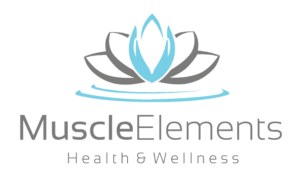By Dr. Jennifer Yee, BHSc, ND (naturopathic doctor)
Recently detoxification has become trendier and most people have a vague idea of what it is, but what does it really involve and what are the benefits? To put it simply, detoxification, is about stimulating the bodies own natural elimination pathways – liver, lungs, digestive tract, lymphatic system and skin (through the process of sweating) – to mobilize and excrete toxins from the body. Toxins can accumulate over time through exposure to contaminants in our environment. Some of these can come from obvious sources such as pollution and pesticides, but others can be more well hidden. There can be harmful substances in things we use and consume everyday such as plastic containers or utensils, household cleaning products, and pesticides, synthetic hormones, and preservatives in non-organic and processed foods. Stress can also cause significant physiological responses within the body that can also contribute to challenges to detoxification. Over time, these toxins can lead to a whole host of health problems which can include chronic headaches, muscle and joint pain, frequent colds and flus, and decreased energy and mental alertness.
Contrary to what celebrity magazines seem to imply, detoxification is about more than just crash dieting to drop pounds quickly. The benefits of detoxification include improving the digestive system, rebalancing hormonal function, optimizing the immune system, and lessening mood swings and “brain fog”. Some people also notice an improvement in chronic conditions like acne, arthritis, headaches/migraines, lowered mood and fatigue. As an added benefit, detoxification also supports healthy cholesterol and fat metabolism which can help you in your quest to achieve and maintain a healthy body.
Detoxification should not be done by those who are pregnant or breastfeeding. If you have a medical condition or are taking any medications, make sure you check with your medical doctor, naturopathic doctor, or another licensed health care practitioner to make sure which forms of detoxification are safe for you. Detoxification can be done at any time of the year, but the optimal times are in the spring and fall. During the seasonal transitions from winter to spring and summer to fall, our bodies are most vulnerable to illness and imbalance.
So what is the “best” way to detoxify the body? The answer is that there is no single cookie-cutter approach because everyone is unique. Naturopathic doctors can use several methods to support detoxification – herbs, hydrotherapy, homeopathy, dietary advice, lifestyle modification, Traditional Chinese Medicines, and nutritional supplements. The treatment approach varies depending on each patient’s individual health concerns and is tailored to fit his or her needs. Acupuncture, massage therapy, craniosacral therapy, and manual osteopathy can also be very useful to assist the body through the detoxification process.
Here are some basic tips, though, to get you started. Drink some lemon juice (about ½ a lemon) mixed in water first thing in the morning (don’t add sugar or artificial sweeteners!) – the tartness will stimulate your digestive system, kick-start your metabolism, and lymph drainage pathways; and the vitamin C will give your immune system a boost. Make sure you eat a lot of fibre to support your digestive system – healthier options include brown rice, beans, lentils, legumes, dark green leafy vegetables, and nuts and seeds (avoid peanuts because they are high in saturated fats). Eliminate alcohol and caffeine from your diet to decrease the toxic load on your liver – substitute with non-caffeinated herbal teas; green tea, which has caffeine, is acceptable in moderation. Good luck with your detox!
**Dr. Jennifer Yee, ND, is a fully licensed naturopathic doctor and graduated from the Canadian College of Naturopathic Medicine (CCNM) in 2006. She also obtained a Bachelor of Health Sciences degree from Western University prior to studying naturopathic medicine. She is registered with the College of Naturopathic Doctors of Alberta (CNDA) which is regulated by the government of Alberta.
